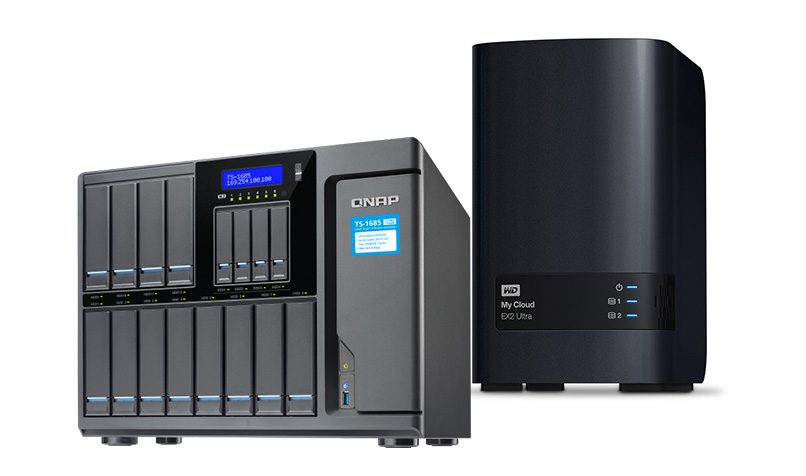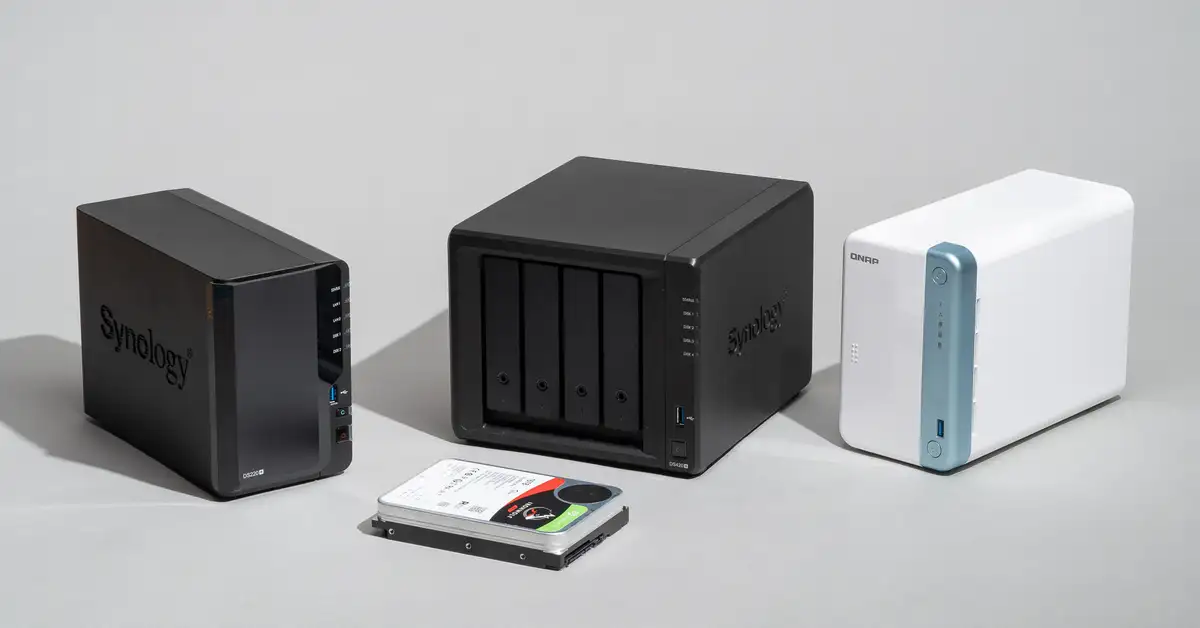Choosing the Right NAS Storage: A Guide on NAS Servers Features, RAID Levels, and Data Recovery
Choosing the Right Network-Attached Storage (NAS) Unit
The Importance of Storage Capacity, Drive Bays, and RAID Level
With the increasing amount of digital data that we generate every day, it's becoming more important than ever to have a reliable and secure storage solution. Network-attached storage (NAS) drives have become an increasingly popular option for both personal and professional use. But with so many options available on the market, how do you choose the right one for your needs?

Consider Storage Capacity
Firstly, you need to consider the storage capacity you require. This will depend on the amount of data you need to store and how you plan to use the NAS drive. If you are using it for personal use, a drive with a capacity of 5-10 terabytes may be sufficient. However, if you are running a business or need to store large files such as videos, a higher capacity drive may be more suitable.
Number of Drive Bays
The number of drive bays is another important consideration. A single-bay NAS drive is suitable for personal use, but if you need more storage capacity or want to use RAID for recovery and redundancy, a multi-bay NAS drive is a better option.
Choose the Right RAID Level
Another consideration when choosing a NAS drive is the RAID level. RAID (Redundant Array of Independent Disks) is a technology that allows multiple hard drives to be combined into a single logical unit for improved performance, reliability, and data protection. Different RAID levels offer different levels of data protection, performance, and capacity.

For example, RAID 0 offers the highest performance and capacity but no data redundancy, so if one drive fails, all data is lost. RAID 1, on the other hand, offers complete data redundancy but at the cost of capacity, as half of the total storage is used for mirroring. RAID 5 and RAID 6 offer a good balance of performance, capacity, and data protection, with the ability to withstand one or two drive failures respectively.
It is important to choose a NAS drive that supports the RAID level that best meets your needs. Additionally, some NAS drives offer the flexibility to change RAID levels as your needs change, so it is important to consider this when choosing a NAS drive. Overall, understanding the different RAID levels and choosing the one that best meets your needs is an important consideration when choosing a NAS drive. A NAS with a solid-state drive (SSD) will be faster, but also more expensive than one with a traditional hard drive. However, if you are using the NAS drive for business or require faster access to your data, an SSD may be worth the investment.
Specific NAS Brands Features
Synology DiskStation NAS is a versatile storage solution that caters to a wide range of use cases. It is suitable for advanced file management, system administration, business productivity, and security, dealing with ransomware, storage for content creators, virtualization, user management, data backup, media organization, cross-site synchronization, and edge computing and storage.
On the other hand, QNAP NAS devices offer specific features that make them ideal for secure business backup, versioning and snapshots, FC-SAN solutions, cold data storage, RAID protection, all-flash storage, high availability storage, smart video surveillance, and S3 compatible object storage.
TerraMaster NAS excels in enterprise files backup, files management, centralized files storage, access, and management, data backup, and files security management.
Select NAS OS with proper software and features offered
Choosing the right NAS drive requires careful consideration of the specific features and use cases that are most important to you. By comparing the features and benefits of different NAS devices, you can find the one that best meets your needs and provides the level of performance and security that you require. Finally, you need to select the software and features offered by the NAS server. Look for a drive that comes with easy-to-use software for setup and management, and features such as remote access, media streaming, and backup options. By taking the time to research and compare options, you can find the perfect NAS drive to meet your storage needs.

NAS Data Recovery options
When selecting a NAS drive, it's crucial to keep data recovery in mind. Despite their reliability and security, NAS drives can still suffer data loss due to various factors such as hardware failure or user error. It is important to choose a NAS drive that comes with reliable backup and recovery options, as well as robust RAID protection to prevent data loss. Additionally, it is recommended to have a backup plan in place to ensure that your data is protected in case of a catastrophic failure. In the event of data loss, there are also professional server data recovery services available that can help you recover your data from your NAS drive. However, these services can be expensive and time-consuming, so it is best to take preventative measures and choose a reliable NAS drive with strong backup and recovery options.
